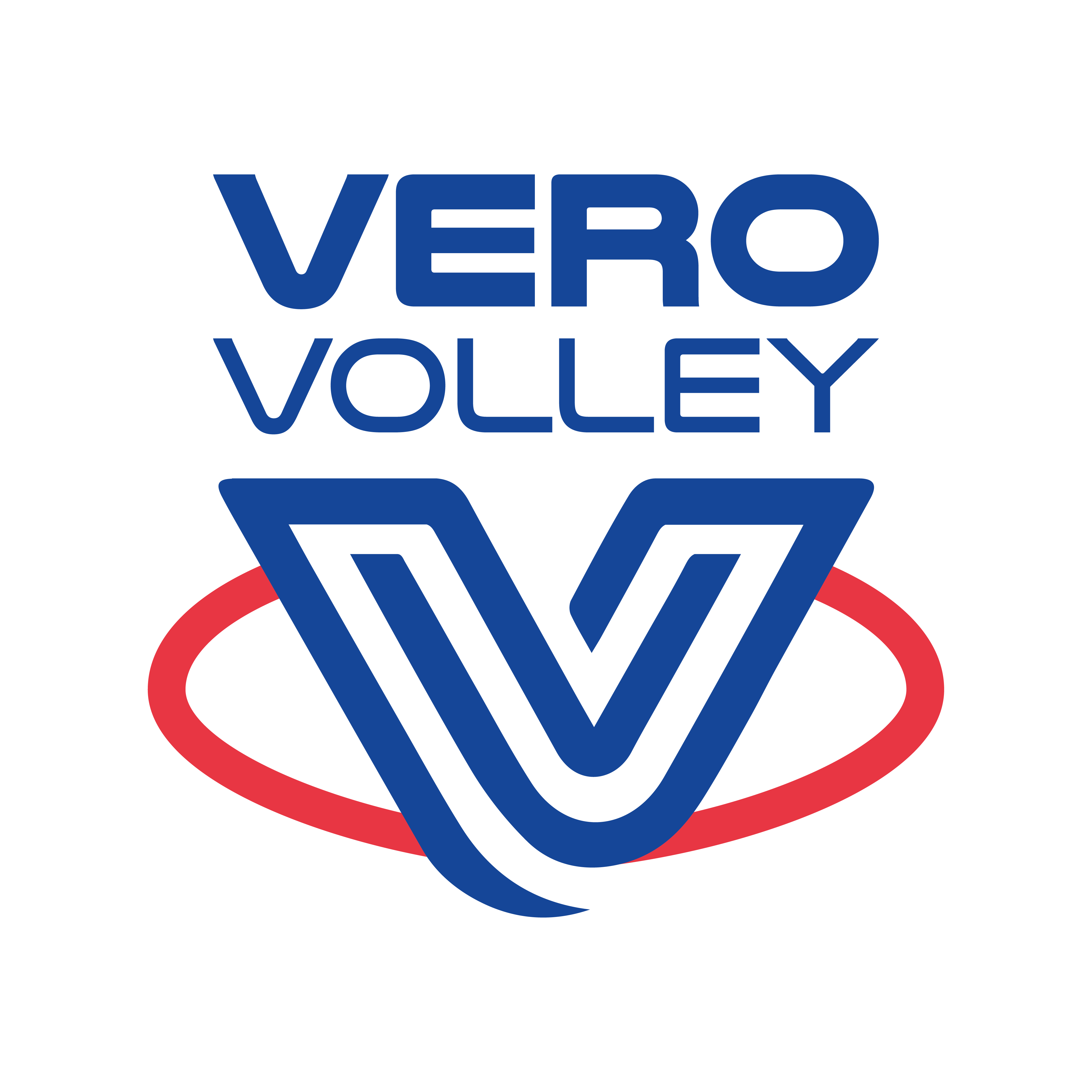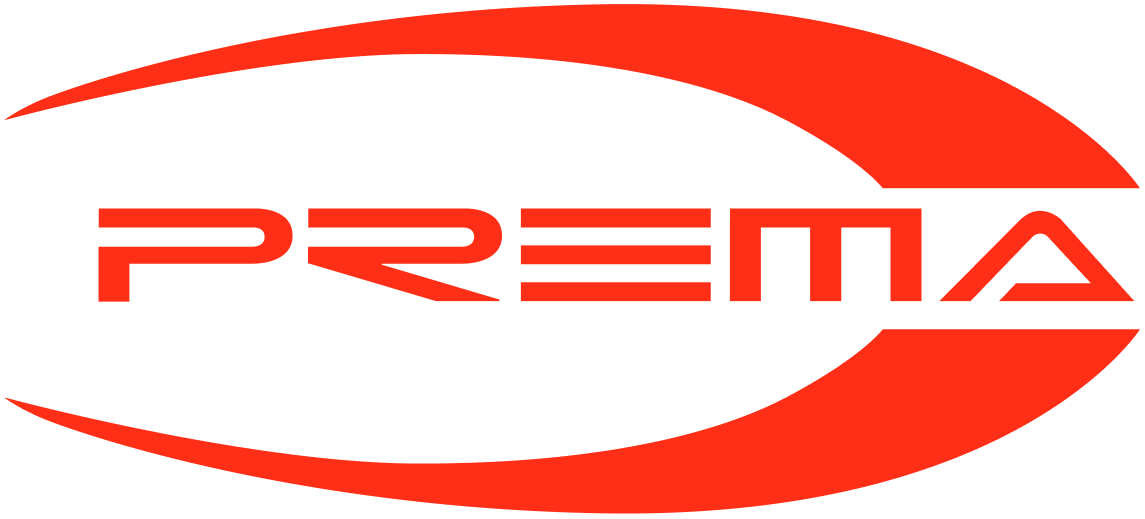 a class of chemicals released as gases that contribute to that harsh new-paint smell. They also know that gases can be harmful to humans and the environment. In people, VOCs can cause nausea, nose and throat irritation, headaches, nerve damage, and possibly cancer. The 210,000 tons of solvents that the auto industry releases every year create ozone, which causes air pollution
a class of chemicals released as gases that contribute to that harsh new-paint smell. They also know that gases can be harmful to humans and the environment. In people, VOCs can cause nausea, nose and throat irritation, headaches, nerve damage, and possibly cancer. The 210,000 tons of solvents that the auto industry releases every year create ozone, which causes air pollution
In recent years, auto manufacturers and body shop owners have turned to paints with fewer VOCs in an effort to ensure worker safety and reduce their environmental effects. Choosing the right kind of low-VOC paint for your body shop can improve the quality of your work and the health of your workers.
While the EPA regulates VOC levels from auto manufacturing facilities and some body shops, there are no established federal standards for the paint products themselves to be considered “low-VOC.”
Fortunately, a number of independent nonprofit organizations such as Greenguard and Green Seal conduct thorough evaluations and award “green labels” to manufacturers that pass their stringent guidelines, providing a helpful reference for the auto industry. A number of paint manufacturers, including Rodda, Benjamin Moore, and Miller Paint Company hold Green Seal status.
The chart below provides a good guide for what most industry professionals consider “low-VOC” paint:
|
Product Category |
CARB/Low-VOC Limit |
|
Primer Sealer |
2.1 lbs./gallon |
|
Primer Surfacer |
2.1 lbs./gallon |
|
Topcoat (single stage) |
2.8 lbs./gallon |
|
Basecoat |
3.5 lbs./gallon |
|
Clearcoat |
2.1 lbs./gallon |
Many well-known producers of automotive now offer low-VOC paints, including Valspar, DuPont, and Summit Racing. A handful of companies have even begun marketing no-VOC paint, including AFM Safecoat, Behr, and Sherwin Williams.
Low-VOC paints come in two flavors: low-VOC solvent-based paints and waterborne paints. The primary difference lies in each paint’s carrier agent – the chemical that suspends a paint’s pigment until it’s ready for application.
A solvent-based paint still contains some VOCs, which will evaporate into the air as the paint dries. In waterborne paint, water is the only solvent, eliminating almost all volatile compounds in the solvent.
Here’s how these paints stack up in a few important tests:
Cost: Solvent-based paint is generally less expensive than waterborne paint, and will likely work with your existing painting equipment. If you switch to waterborne paint, you’ll need to purchase a stainless steel paint gun to prevent corrosion.
We recommend making the switch to waterborne paint, since much of the industry is already moving in that direction. Some states – especially California – all but require it for most body shops. If you do make the change, you’ll need a stainless steel paint gun to prevent corrosion, as well as some drying equipment to help speed up the longer curing process. With a few modifications and additional training, you’ll have better paint job results while staying ahead of the regulatory curve.
Whether you choose the low-VOC or the waterborne option, you’ll need a healthy supply of compressed air to assist in application and drying. At Mattei, we’re here to ensure that you can apply a beautiful finish to every car while meeting the highest health and safety standards. Our rotary vane air compressors – coupled with the appropriate dryer and filters – produce high volumes of the purest grade air and significantly shorten drying time, cutting costs and heightening efficiency in every aspect of operations.

Mattei offers a wide range of vane compressor models that perfectly meet the specific needs of the transport industry.

The reliability of Mattei compressors, the high quality standards of the delivered compressed air and the compliance with the industry regulations, make them ideal to be used in the healthcare and pharmaceutical industry.

Reduced operating costs, environmental sustainability and extreme purity of the air supplied make Mattei compressors suitable for all processes in the food industry.
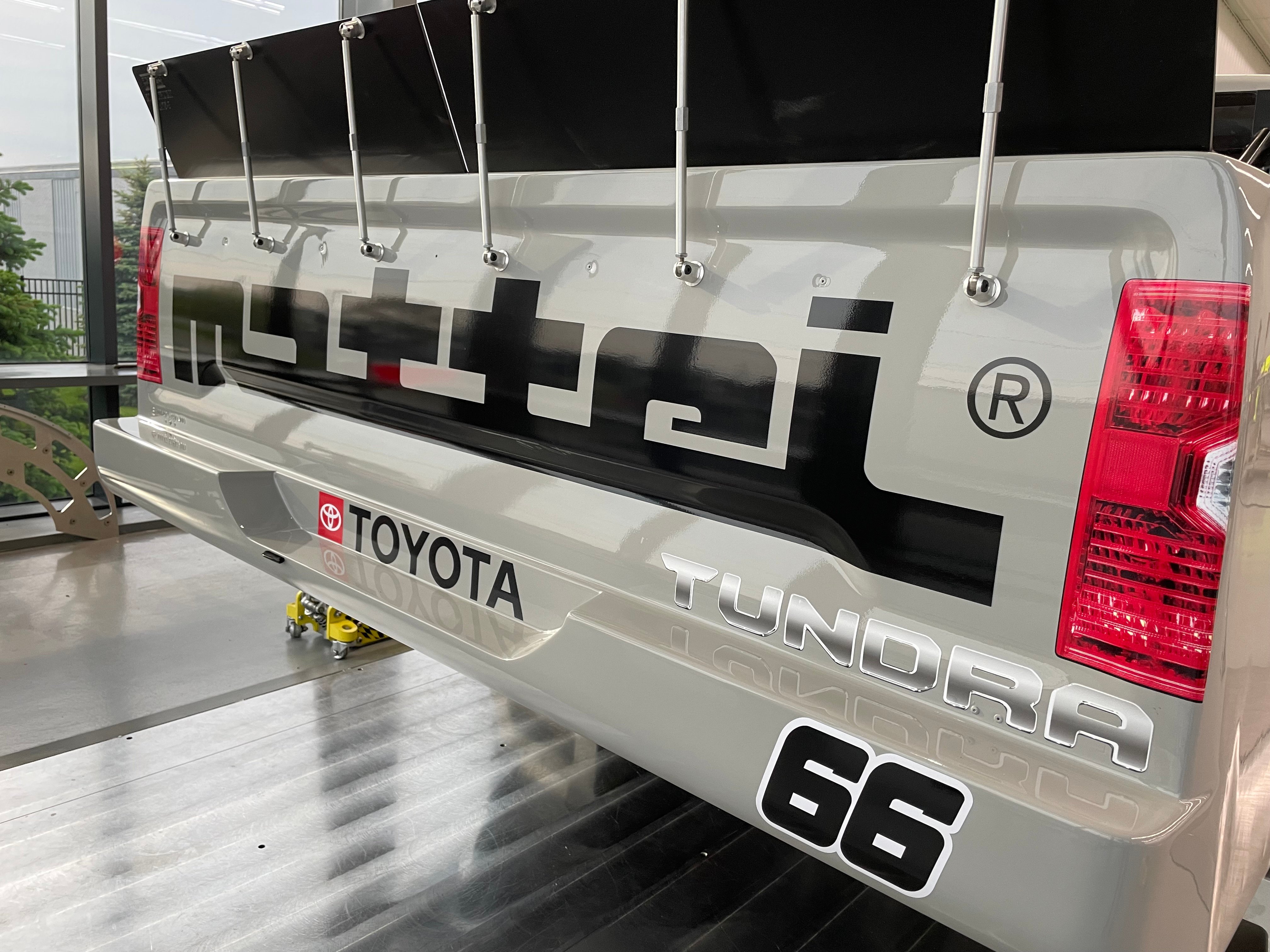
Good luck ThorSport Racing. Waiting to watch the racing!
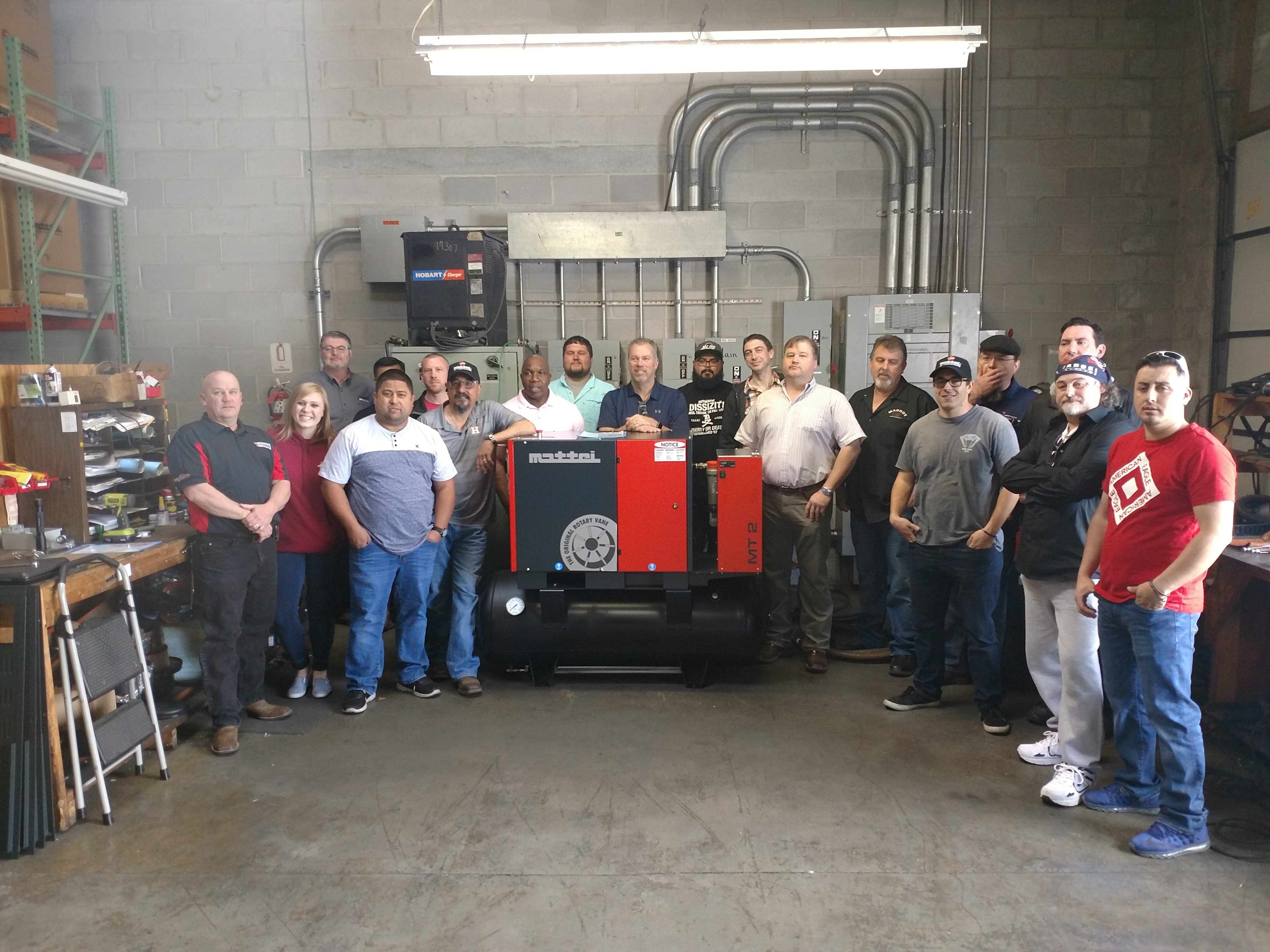
We recently held our Spring 2018 Service School for distributors. The school graduated 17 participants from both the sales and service sides.

Today, Mattei Compressors, Inc., announced the recipients of its 2017 Distributor Awards. These distributors went above and beyond to provide high-quality service to Mattei customers over the past year.
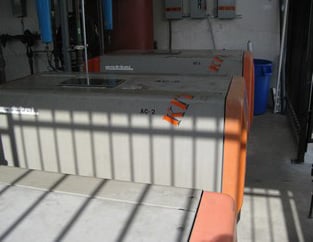
Helix Medical, LLC is widely regarded as a premier supplier of biocompatible silicone medical devices and components to the medical device, pharmaceutical and biotech industries.
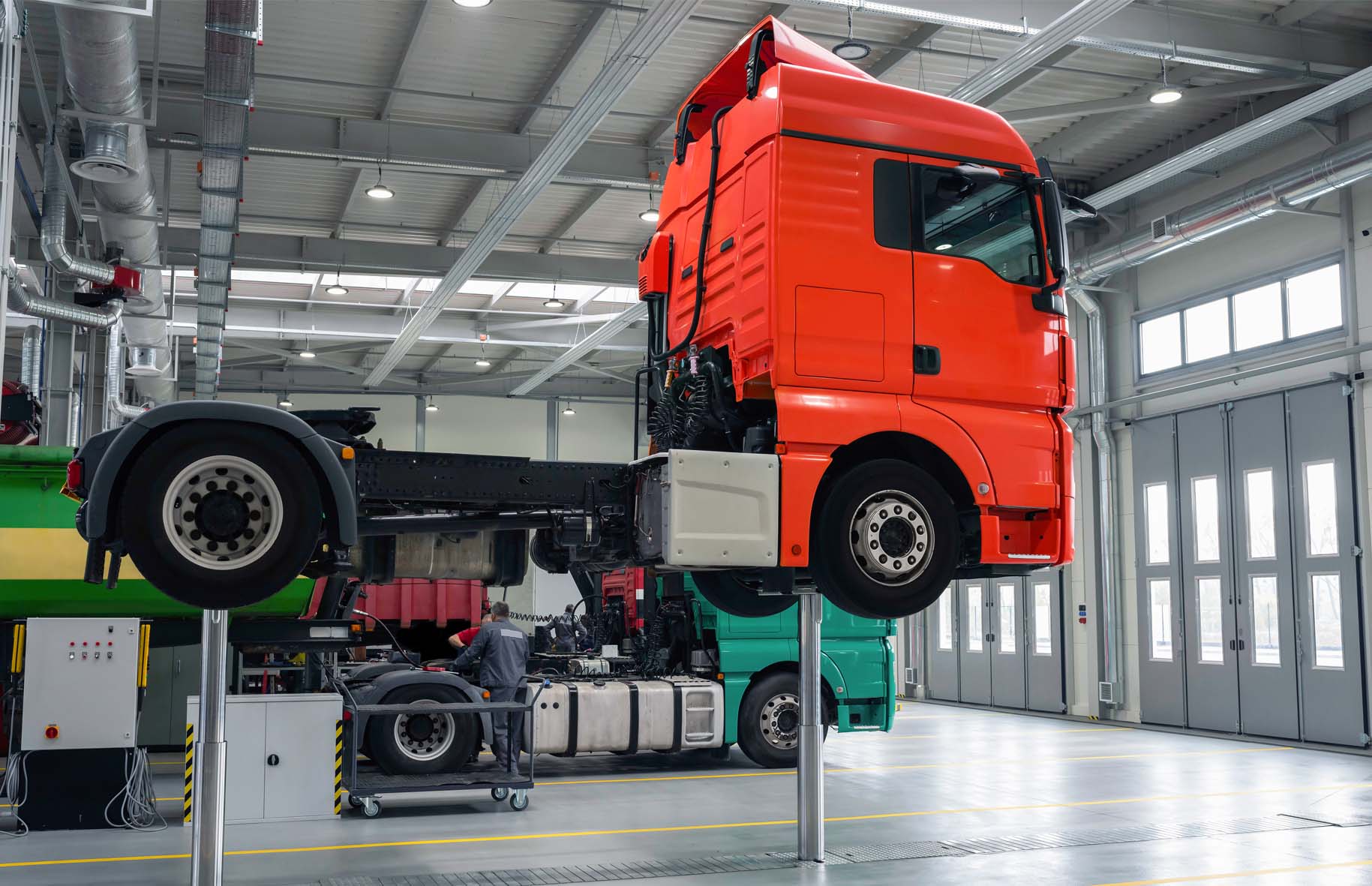
John Baker Sales, a Mattei distributor located in Colorado, worked very closely with Transwest to ascertain the company’s needs prior to making a product recommendation.
